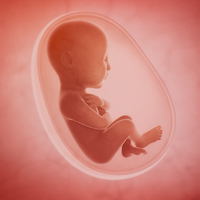Microbiome and Nutrition
The complex community of bacteria, yeasts and viruses living in our intestines, collectively known as the gut microbiome, is shaped, in part, by what we eat. Genetics, environment, and other factors also influence an individual’s microbial community. Research at the NRI investigates these complex relationships and their impact on disease risk. We use animal models and bioinformatics to study the associations between nutritional metabolites, gut microbiome, and health. What happens in the gut doesn’t stay in the gut. Your microbiome can play a role in cardiovascular disease, obesity and diabetes, and even cancer. Our team envisions a future where analysis of your microbiome can determine disease risk, and medical foods can be prescribed to treat and prevent disease by regulating the microbiome.
Publications
Microbiome and Nutrition Publications
2020
Population studies of TMAO and its precursors may help elucidate mechanisms. Meyer K
2019
Association of dietary patterns with the gut microbiota in older, community-dwelling men. Meyer K
2018
Meta-analysis of human genome-microbiome association studies: the MiBioGen consortium initiative. Meyer K
Human microbiota, blood group antigens, and disease. Sumner S
2017
Trimethylamine N-Oxide, the Microbiome, and Heart and Kidney Disease. Zeisel S
2016
Diet and Gut Microbial Function in Metabolic and Cardiovascular Disease Risk. Meyer K
Antibiotic-mediated gut microbiome perturbation accelerates development of type 1 diabetes in mice. Sumner S
Related News
Salad – It’s in the Bag
July 31, 2018 – From our neighbors at the Dole Nutrition Institute comes helpful information about a healthful summertime dining option.
Bagged salads are just what you need when you have unannounced guests or for those times when you just don’t want to turn on the oven! It’s the one item that should always be in your fridge so you can take advantage of recipes like our Chipotle Spring Rolls, a real crowd pleaser! This month we’re setting the record straight on this mealtime shortcut by answering your questions and addressing concerns about bagged salads and salad kits.
Prenatal Calories More Important than Alcohol Exposure in Obesity
July 31, 2018 – Prenatal alcohol exposure (PAE) impairs fetal neurodevelopment and ultimately causes fetal alcohol spectrum disorders (FASD). PAE has also been associated with low birthweight and a higher risk for development of childhood obesity and metabolic dysfunction including glucose intolerance and cardiovascular disease.
May 2019
Nutrition Decisions in a Conflicting World: Eggs-actly the Issue April 18, 2019 – How are we expected to make healthy choices about food when the headlines are so confusing? We all suffer whiplash when we read butter is bad, then butter is good; when red meat is bad,...
AFL Recipes
AFL@JWU Recipes –October 15, 2019 Chef Megan Lambert, MS, RD, Senior Instructor in College of Culinary Arts at Johnson & Wales University, Charlotte, prepared Healthy Fall Soups & Stews recipes while Sarah Hreyo of the UNC Nutrition Research Institute, shared...
April 2019
NIH Grant To Study Gene Mutation Associated with Rare Disease March 22, 2019 – Sergey A. Krupenko, PhD, professor of nutrition at the UNC Nutrition Research Institute (NRI), has been awarded a $2.4 million grant from the National Institutes of Health for his research...
March 2019
Personalized Nutrition: A Diet for Every Individual? February 25, 2019 – A new study published in the journal Genetics looks at how genetics interacts with diet to alter metabolic health (ex. body fat, cholesterol, insulin, and other markers of health and disease)....



